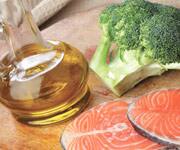Life Extension Magazine®
Cancer Treatment Benefits Of Metformin | |
Numerous studies link the antidiabetes drug metformin with reduced risk of cancer and potentially better treatment outcomes in cancer patients. Metformin functions as an activator of AMPK in cells throughout the body, and this mechanism is associated with reduced cancer risk. Two recent studies further corroborate the potential benefit of metformin in those stricken with cancer. Research reported in American Journal of Respiratory and Critical Care Medicine reveals that the diabetes drug metformin significantly improves survival of lung cancer patients.* For the study, researchers used data from the Surveillance, Epidemiology, and End Results (SEER) registry to identify 750 diabetic patients diagnosed with stage IV non-small cell lung cancer. Median survival in the metformin group was five months, compared to three months in patients not treated with metformin. Analyses showed that metformin use was associated with a significant improvement in survival. Lung cancer patients typically have poor treatment outcomes and a median survival improvement of even two months is sometimes the basis for approving expensive new cancer drugs. A second study in Annals of Surgery found that metformin use decreased the recurrence, all-cause mortality, and cancer-specific mortality rates among gastric cancer patients with diabetes who underwent gastrectomy.** In this trial, researchers compared survival rates of a total of 1,974 gastric cancer patients—132 diabetic patients treated with metformin, 194 diabetic patients who were not treated with metformin, and 1,648 nondiabetic patients—who underwent curative gastrectomy. During a 6.2-year follow-up period, researchers noted that diabetic patients treated with metformin had a significantly better prognosis than those who were not, and each cumulative six months of metformin use was significantly associated with a decreased risk of recurrence, cancer-specific mortality, and all-cause mortality. |
|
| Reference | |
* Am J Respir Crit Care Med. 2014 Dec 18. [Epub ahead of print.] |
|
Mediterranean Diet Associated With Longer Telomeres | |
According to an article published in the British Medical Journal and widely reported by CNN in early December, those who regularly eat a Mediterranean diet rich in polyphenols and anti-inflammatory compounds have longer telomeres and may live longer than those who don’t.* Researchers utilized data from 4,676 middle-aged participants in the ongoing Nurses’ Health Study, which began enrolling subjects in 1976. Dietary questionnaires completed in 1980 were scored for adherence to a Mediterranean diet, which is characterized by a high intake of vegetables, fruits, nuts, legumes, grains, and olive oil. Blood samples collected from 1989 to 1990 were analyzed for white blood cell telomere length. Telomeres, which cap the ends of chromosomes, get shorter every time a cell divides, so their length is thought to be a measure of a cell’s aging. Stress and inflammation may also shorten people’s telomeres, the researchers said in the study. “Our findings showed that healthy eating, overall, was associated with longer telomeres,” reported lead author Marta Crous-Bou, a postdoctoral fellow in the Channing Division of Network Medicine. “However, the strongest association was observed among women who adhered to the Mediterranean diet.” Telomeres have been the subject of a significant amount of recent research. Longer telomeres have been associated with a reduced risk of chronic diseases and increased life span. |
|
| Reference | |
* BMJ. 2014;349:g6674. |
Three Nutrients Lower Alzheimer’s Disease Risk |
The Journal of Alzheimer’s Disease reported positive results for a combination of three nutrients in the prevention of Alzheimer’s disease in older individuals.* The trial included 918 participants in the Tone Project, which enrolled men and women aged 65 years and older. Subjects were offered the choice of receiving nutritional supplementation, taking part in a two-year exercise program, or participating in both. Beginning in 2002, 171 men and women who elected to receive supplements were given capsules containing 290 mg EPA and 203 mg DHA from fish oil, 240 mg Ginkgo biloba extract, and 84 mg lycopene for three years. Neuropsychological testing was administered at the beginning of the study and at the first and second follow-up visits during 2004-2005 and 2008-2009. Over follow-up, 76 subjects were diagnosed with Alzheimer’s disease. Adherence to the supplement regimen was associated with a 31% lower adjusted risk of the disease in comparison to no supplementation. Editor’s Note: Those engaging in the exercise regimen were associated with a 21% lower risk of Alzheimer’s disease compared with those who did not take part in the program. The benefit, however, was no longer observed after adjustment for a number of factors. |
|
| Reference | |
* J Alz Dis . 2014 Dec 16. |
|
DNA Damage May Be A Marker Of Insufficient Zinc Status | |
A trial reported in Nutrition Research found a protective effect for zinc supplementation against DNA strand breaks.* This type of genetic damage is caused primarily by reactive oxygen species and can lead to further damage and consequent disorders if not repaired. The study included 40 Ethiopian women believed to be of low zinc status due to decreased meat intake and high dietary phytate levels, which reduce zinc absorption. Plasma zinc levels were measured in blood samples collected at the beginning of the study. The women were given 20 mg zinc or a placebo daily for 17 days. Comet assay of intracellular DNA strand breaks was conducted in cells collected at the beginning and end of the trial. By the end of the study, comet tail measurement of DNA strand breaks decreased from an average of 39.7 to 30.0 in the supplemented group. DNA repair is an essential element of longevity and a number of nutrients that health conscious people supplement with today have been shown to help facilitate DNA repair. Editor’s Note: “Zinc deficiency in both in vitro and in vivo models is associated with increased oxidative stress and increased DNA damage,” note Maya L. Joray of the University of Colorado Health Sciences Center and colleagues in their introduction to the article. “As a result of this relationship between cellular zinc levels and DNA damage, the comet assay, a method that measures DNA strand breaks in cells, may represent a sensitive functional tool to assess response to zinc supplementation.” | |
| Reference | |
* Nutr Res. 2015 Jan;35(1):49-55. | |
Cancer Deaths Down In United States | |
The annual American Cancer Society statistics report published in CA: A Cancer Journal for Clinicians reveals a 22% decline in cancer mortality over the past two decades, which signifies a reduction in cancer deaths of over 1.5 million that would have otherwise occurred at previous rates.* The data, obtained from the National Cancer Institute, the Centers for Disease Control and Prevention, and the National Center for Health Statistics, show a decrease that is mainly attributable to lower mortality due to breast, colon, lung, and prostate cancers. The rate of dying from breast cancer dropped 35% from previous rates, and colorectal and prostate cancer deaths have been reduced by 47%. Between 1990 and 2011, deaths from lung cancer decreased 36% in men, and for women, the rate declined by 11% from 2002 to 2011. Editor’s Note: The report’s authors attribute the improvements to a reduction in the percentage of smokers in the US, and advances in prevention, detection, and treatment of cancer. | |
| Reference | |
* CA Cancer J Clin. 2015 Jan 5;65(1):5-29. | |
Low Vitamin D Levels Linked To Greater Premature Mortality Risk | |
A study reported in the British Medical Journal has uncovered an association between genetically low vitamin D levels and an increased risk of mortality over follow-up among Danish men and women.* The investigation included 95,766 participants in three studies. Over the study’s median follow-up time of up to 19.1 years, 10,349 deaths occurred. After evaluating the association between 25-hydroxyvitamin D levels and mortality over the follow-up period, the researchers analyzed the relationship between genotypes that decrease plasma vitamin D and the risk of mortality. “We can see that genes associated with low vitamin D levels involve an increased mortality rate of 30% and, more specifically, a 40% higher risk of cancer-related deaths,” reported lead author Shoaib Afzal. “An important factor in our study is that we have established a causal relationship.” | |
| Reference | |
*Br Med J. 2014 Nov 19. | |
Whey Protein Helps Preserve Muscle During Weight Loss | |
An article in the Journal of Nutrition reports the outcome of a trial of overweight and obese individuals that found a protective role for whey protein supplementation against some of the loss of muscle that occurs with dieting.* Researchers randomized 40 subjects to receive a 14-day, low-calorie diet supplemented with whey protein, soy protein, or the addition of carbohydrate providing a number of calories equal to that of the protein supplements. Myofibrillar protein synthesis (a measure of muscle maintenance) was assessed while fasting and following a meal, before and after the two-week diets. Prior to the start of the diet, myofibrillar protein synthesis was found to be stimulated more following whey consumption in comparison with soy or carbohydrate ingestion. While all groups experienced a similar decline in myofibrillar protein synthesis while fasting, the decrease was less among those who received whey protein following a meal. Editor’s Note: Among those who received carbohydrates, the decrease in postprandial myofibrillar synthesis averaged 31%, in comparison with only 9% and in the group that received whey protein and soy. The soy protein group had a 28% decrease in postprandial myofibrillar synthesis, clearly showing the benefit of whey protein over soy or carbohydrates in preserving muscle mass. | |
| Reference | |
* J Nutr. 2014 Dec 17. | |
Resveratrol Can Protect Against Alcohol’s Cancer-Causing Effect | |
|
Excess alcohol consumption can lead to an increased risk factor for certain kinds of cancers, said Robert Sclafani, PhD, and associates in Advances in Experimental Medicine and Biology, but resveratrol in red wine may potentially protect against the cancer-inducing effect of alcohol.* “Alcohol bombards your genes,” explained Dr. Sclafani. “Your body has ways to repair this damage, but with enough alcohol, eventually some damage isn’t fixed. That’s why excessive alcohol use is a factor in head and neck cancer. Now, resveratrol challenges these cells—the ones with unrepaired DNA damage are killed, so they can’t go on to cause cancer. Alcohol damages cells and resveratrol kills damaged cells. “When you look at epidemiological studies of head and neck cancer, alcohol is a factor, but by alcohol source, the lowest cancer incidence is in people who drank red wine,” he observed. “In red wine, there’s something that’s blocking the cancer-causing effect of alcohol. “Resveratrol takes out the cells with the most damage—the cells that have the highest probability of being able to cause cancer.” Editor’s Note: Dr. Sclafani has plans to test the protective effect of resveratrol against head and neck cancer and other malignancies. | |
| Reference | |
* Adv Exp Med Biol. 2015;815:333-48. | |
Study Reveals Low Bioavailability For Oral Ursolic Acid In Humans | |
|
The Life Extension® Foundation recently supported a clinical research initiative on how the human body responds and absorbs ursolic acid, a compound found throughout the plant kingdom that has been observed to have anticancer and anti-inflammatory effects.* This initial study is important since there is very little published literature available that provides data on the use of ursolic acid in humans. Subjects were administered a single ascending oral dose of ursolic acid (100 mg, 500 mg, and 1,000 mg). Assessments were performed pre-dose and at various time points for each dose. No serious adverse events were observed however, statistical analysis of the data revealed that the bioavailability of ursolic acid in the body was low and variable. Probable explanations for these results include:
Editor’s Note: In other preclinical research, absorption was observed to be rapid with elimination also considered to be rapid. The results from these preclinical studies differed from the results from this clinical study, as the peak levels did not occur in the human subjects as expected. The findings from this clinical study were presented as a poster presentation at the recent Experimental Biology Scientific Conference in April 2014. | |
| Reference | |
* Life Extension® Foundation. A Single Ascending Dose, Initial Clinical Pharmacokinetic & Safety Study of Ursolic Acid. Abstract Number 2544. |
|
Pycnogenol® Reduces Cold Symptoms And Duration | |
An article published in Panminerva Medica reveals a benefit for Pycnogenol®, a standardized extract of French maritime pine bark, in relieving the length and symptoms of the common cold.* The study included 70 adults who had not contracted a respiratory illness or received the influenza vaccine over the three previous months. An additional 76 untreated men and women served as controls. At the first sign of a cold, the treatment group was instructed to consume 50 mg Pycnogenol® twice per day in addition to their preferred best management, while the control group was asked to rely upon best management alone. Participants who supplemented with Pycnogenol® experienced symptoms for an average of three days, compared with four days among the controls. They also had a reduction in the number of days lost to work, less need for additional treatments, reduced complications and duration beyond four days, and shorter duration of all symptoms. Editor’s Note: “The significant effect of Pycnogenol® to treat nasal congestion and runny nose can be attributed to the extract’s natural anti-inflammatory and antiedema qualities and for its ability to improve blood circulation,” stated lead researcher Gianni Belcaro of Chieti-Pescara University in Italy. “These findings are supported by decades of research on Pycnogenol®’s ability to naturally boost the immune system.” | |
| Reference | |
|
* Panminerva Med. 2014 Dec;56(4):301-8. | |
Vitamin E Could Boost Pneumonia Protection | |
|
The Journal of Immunology reports findings that suggests a role for vitamin E supplementation in protecting against pneumonia.* “Earlier studies have shown that vitamin E can help regulate the aging body’s immune system, but our present research is the first study to demonstrate that dietary vitamin E regulates neutrophil entry into the lungs in mice, and so dramatically reduces inflammation, and helps fight off infection by this common type of bacteria,” announced lead author Elsa N. Bou Ghanem, PhD. Young and old mice were given a diet supplemented with or without extra alpha-tocopherol for four weeks prior to being infected with pneumonia. Two days following infection, older control animals had a thousand times greater bacterial burden, 2.2-fold higher levels of neutrophil recruitment to the lung and a 2.25-fold increased rate of lethal septicemia in comparison with younger mice. These effects were largely prevented in the vitamin E-supplemented older mice, which had levels of neutrophils in their lungs that were comparable to younger controls. Editor’s Note: “Our work provides a better understanding of how nutrition can play a role in modulating how the immune system responds to infection,” co-senior author John M. Leong, MD, PhD, concluded. In cases of bacterial pneumonia, an excess number of neutrophils often attack the lungs and can contribute to a lethal inflammatory response. | |
| Reference | |
* J Immunol. 2014 Dec 15. |









